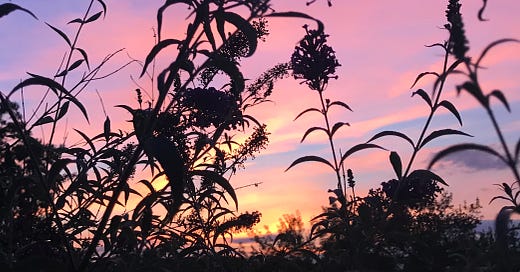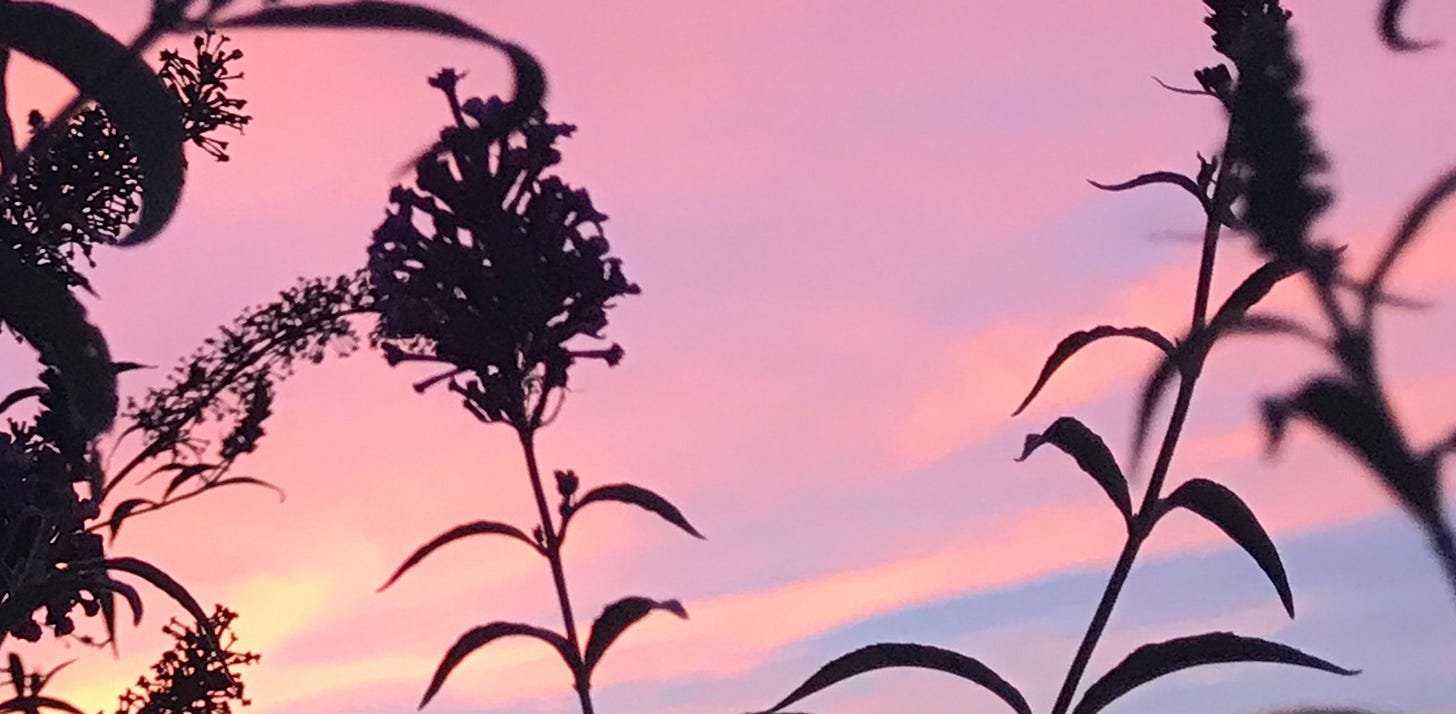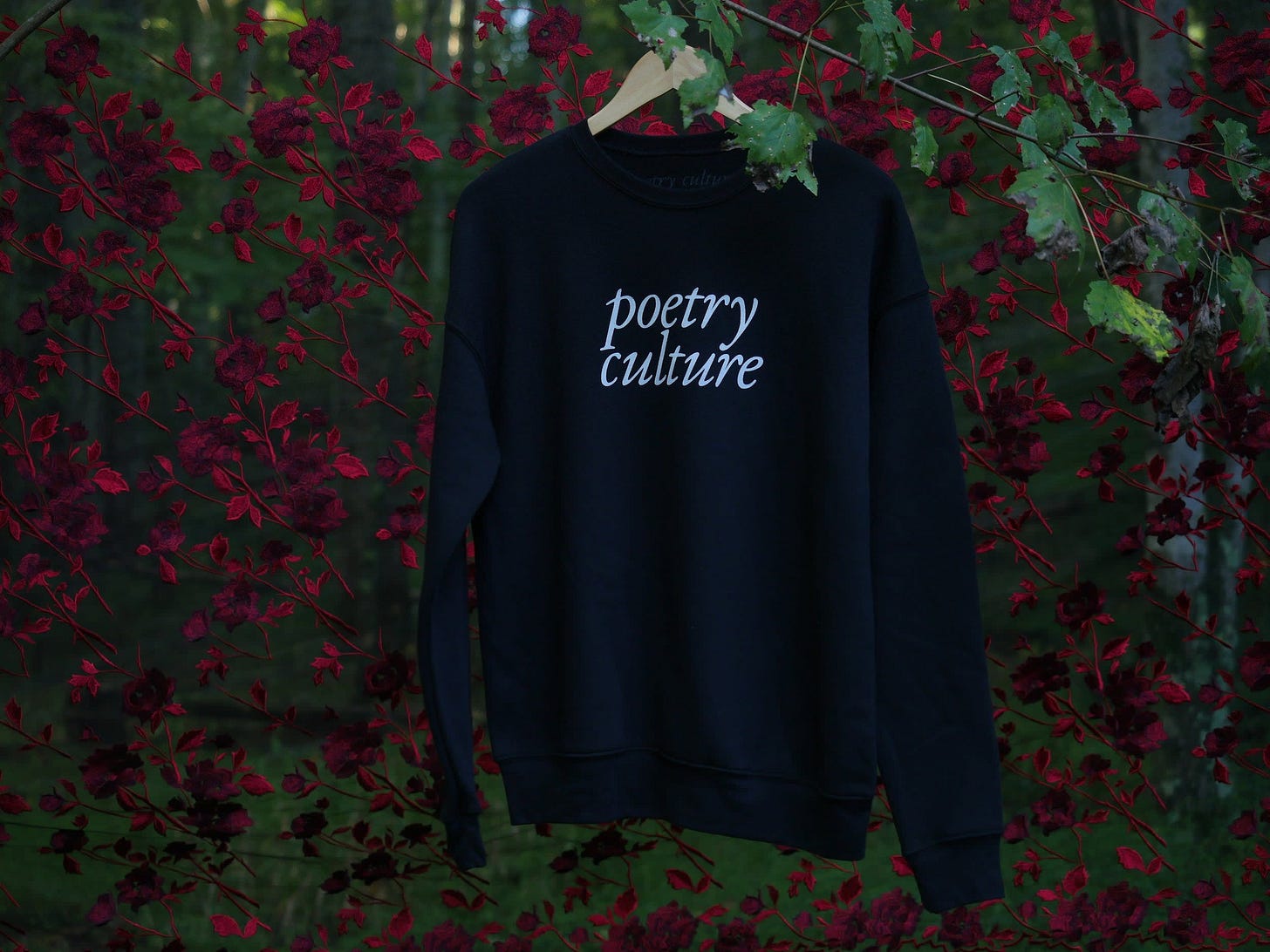The Surprising Benefits of Creative Struggles
Creative friction is emotionally difficult, but it’s not a bad thing. In fact, it’s an indispensable part of the creative process.
Poetry Culture is also available as a podcast on Spotify and other platforms.
We often imagine great writers or artists as effortlessly creative. This belief exists because it's all too easy to compare an artist’s best work to our works-in-progress.
But it also happens because in exceptional circumstances, it’s true. For example, the melody and chord progression for ‘Yesterday’ came to Paul McCartney in a dream.
The fact that creating is sometimes so easy only underlines just how hard it usually is.
Banging his head on the floor, wearing nothing but underwear, Leonard Cohen said “I can’t finish this song.” (Or so the story goes). The song he was referring to—Hallelujah—took years to write and would go on to be his most famous–and arguably, best–work. Cohen also said:
“To find that song, that urgent song, takes a lot of versions and a lot of work and a lot of sweat." - Leonard Cohen
That difficulty, that friction. Let’s be honest. It’s demoralizing and it's difficult. All artists dream of creating great work, especially if it’s easy. But we shouldn’t assume we are not talented or on the right path if creating is difficult.
Creative friction is emotionally difficult, but it’s not a bad thing. In fact, it’s an indispensable part of the creative process.
Friction forces us to slow down, allowing us to make connections and refine our work over time. Extreme friction is not an indictment of our potential. Instead, it’s often just a signal that we need to take a break. Sometimes, it’s even more—a gift.
Difficulty doing something does not necessarily signal that we are on the wrong path. Do not confuse difficulty with wrongness. Running a marathon, climbing a mountain, raising a child. These are inherently difficult things which are meaningful not just despite their difficulty, but also, partially because of that difficulty. Creative work is the same way. The depth of despair and catharsis in Hallelujah–we can feel just how difficult it was for Cohen to write the song when listening to it. And that depth is what makes the song so great.
But beyond the meaning that accomplishing a difficult thing can give us, there is also the more practical benefit of moving slowly:
Friction can allow us time to reflect. That is, to deepen what is good about a work, while changing what is not working. The gift of time allows us the ability to change and perfect our art, instead of merely being stuck with whatever we initially conceived. Sometimes, only time can unlock the small changes which truly finish our work. The same difficulty that slows us down can also be used to power and expand the possibilities of our work.
Even once we accept creative friction as necessary, or even positive, it still is difficult not to compare our work to those of the greats. Hearing how classic songs were written in dreams could be dispiriting to some. Instead, we should flip that. We should think: ‘Wow, if Yesterday was written in a dream, I could write something just as good.”
But let’s look a little deeper into that story.
Although McCartney wrote the melody and chords of ‘Yesterday’ in a dream, for months, the lyrics to the song were “scrambled eggs, oh my baby how I love your legs”. (This sounds like a joke but it is, apparently, true.) Even Yesterday took time, and a willingness to put up with a little bit of silliness, to get the song across the finish line.
Cohen and McCartney’s classic songs are also a reminder of the importance of practice. Before writing Yesterday, Paul McCartney played over 1,100 hours in Hamburg Germany, not to mention countless hours playing alone or in the UK. In Cohen’s case, he had been a recording artist and poet for a couple decades before he wrote his biggest hit. (And, Cohen would have to wait another decade or so for the song to become famous).
Even when a song comes to us in a dream, it takes time to get it right and effort to get it out.
So, how do we balance friction and inspiration? How can we reconcile trusting our intuition and our ability to edit? It’s a deeply personal question, and it depends on context. My personal take is that friction is the flip side of inspiration, and we need both.
Inspiration is obvious. So is the careful perfection that only hard work and effort can bring.
Hallelujah and Yesterday both show the importance of inspiration and the importance of creative friction. Cohen spent years perfecting Hallelujah, turning it into a classic song. McCartney had the benefit of inspiration, but had to spend months until he found the perfect lyrics.
When we find inspiration, it’s important to run with it. Indeed, the knowledge and reassurance that flashes of inspiration do come can give us motivation to persist amidst creative friction. So when inspiration strikes, it is a great idea to incorporate it into our creative practice. (In my case, my band’s name ‘Lonely Singles’ came to me in a dream, and since it came in a dream, I felt that I had to go with it).
Expanding this concept even further, there are many areas where friction in our life can actually be a good thing. The job rejections that force us to learn new skills, and eventually lead to a better career. Or the bad breakup that makes us realize what we actually want in future relationships. In many cases, difficult moments force us to really evaluate where we are going. That difficulty has benefits for us. Indeed, pain can be a teacher.
If you are dealing with creative friction and feel stuck, don’t just give yourself time—give yourself grace.
Whether what you have created recently is a personal favorite, or something you think is only okay, don’t forget this:
You have created something, and that in itself is beautiful. It came from within, and thus speaks to something about yourself. Accepting that your creative work is not born perfect is the same as accepting that you have made, and will make mistakes. Instead of focusing on the imperfections, we should instead focus on the steps we have taken to make progress, to become better. Our art, like ourselves, is a lifelong story of setbacks and strides. What matters is continuing to create.
The knowledge that friction is a necessary part of the creative process makes it easier, and, in the end, results in better work.
Just as importantly, the pain of really pushing through a tough time writing, or creating, encourages us to keep going on those occasions where our work is easy. It is a beautiful thing to achieve a sort of effortless state where we can just create and it comes out well. But those states are rare, and creative friction teaches us this:
When we are inspired, we owe it to ourselves to let that inspiration flow as long as possible. But when we are not inspired, we owe it to ourselves to still try, with inner kindness and compassion.
Thanks for reading Poetry Culture! If you’d like to support us, consider checking out our pencils, notebooks, or other merchandise, available at poetryculture.com/shop
Poetry Culture explores ways to live a more creative and meaningful life. Poetry Culture was founded by Alexander Webb, a freelance writer for the New York Times and National Geographic. Alexander is also the founder of indie band Lonely Singles.









"Don't confuse difficulty with being wrong." I really need to remember this. I like to tell the writers I work with about two poems I wrote that became "successful." (Humble brags ahead. I hope they're useful.) One was "Vermin" which I had published in Poet Lore (a dream journal for me). I wrote it in 15 minutes and edited it in about 10 minutes. My other most "successful" poem at the time was called "A Walk Through the Parking Lot at Midnight," which won the Robert and Adele Schiff Prize. That poem had taken me months to write, rewrite, revise and cut down. Many times I felt like Leonard Cohen, on the floor, banging my head against the tile, thinking the poem would never be done. The level of difficulty you have in writing a piece does not have much bearing on the quality of the finished piece. If a poem comes easily, be happy about it, but if one feels stuck, that doesn't mean it isn't good. It might just mean you're trying too hard, or you need to take a break or learn a new technique or ask a new question or look at the poem from a different angle. Stop hitting your head against the tile and try hitting the poem against the tile, metaphorically. Cut it open, see what is inside, or just go read other things until something sparks. The "answer" is out there!